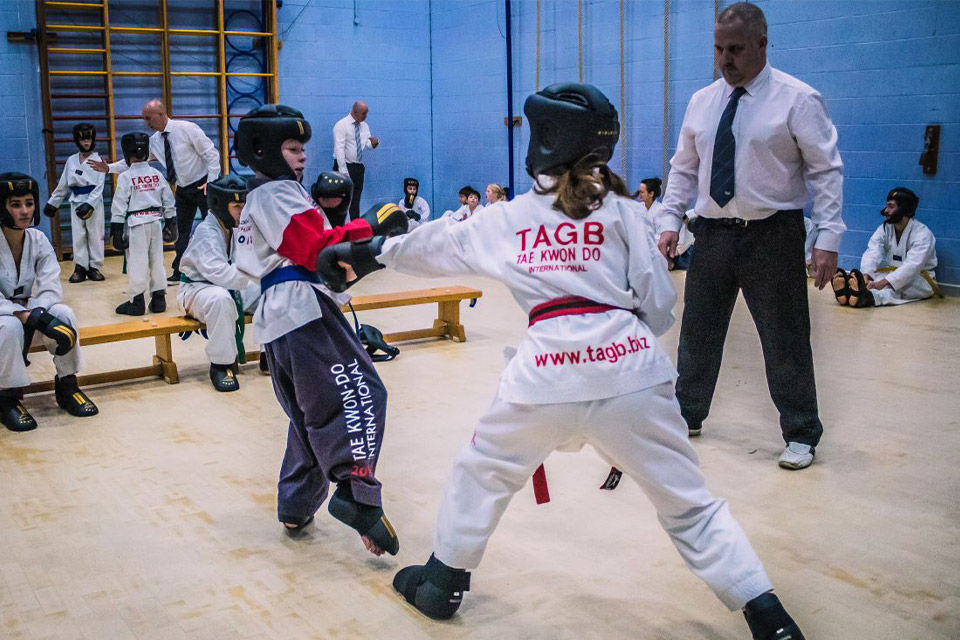Mental Health Benefits of Martial Arts Training
- galashielstkd
- Apr 28, 2025
- 3 min read

Martial arts is more than just kicking and punching; it is a holistic approach to physical and mental health, particularly for children. With rising academic pressures and social anxieties, kids often face challenges that can affect their self-esteem and focus. Participating in martial arts creates a nurturing environment where they can develop essential life skills, fostering confidence, discipline, and resilience. Let’s dive into how martial arts training can significantly improve children’s mental health.
Building Confidence Through Achievement
One of the most impactful benefits of martial arts is the boost in self-confidence it provides. As children learn new techniques and progress through belt ranks, they experience a fulfilling sense of achievement. For instance, when a child successfully executes a tricky kick or completes a complex form (known as a kata), it enhances their belief in themselves.
Small victories, like earning a stripe on their belt, contribute to this journey. Research shows that kids involved in physical activities, including martial arts, are 20% more likely to feel confident in social settings. This newfound confidence can empower them to take on both academic and social challenges with greater assurance.
Enhancing Focus and Concentration
Today’s fast-paced environment makes it tough for many kids to maintain focus. Martial arts training provides a structured setting where children learn not just to concentrate on their movements but also to harness their mental discipline. Classes often involve repetitive drills that engage students’ minds.
For example, practicing for a tournament might require 6-8 weeks of dedicated focus on specific techniques, which translates to enhanced concentration in schoolwork. Many parents report a noticeable 30% improvement in their child's ability to concentrate on homework and tasks after joining martial arts.
Promoting Discipline and Self-Regulation
Discipline is a fundamental aspect of martial arts. Students learn to respect instructors, follow rules, and collaborate with teammates. This discipline encourages self-regulation, helping children manage their emotions, especially in stressful situations.
Through martial arts, kids witness firsthand the consequences of their actions. For example, skipping practice often results in feeling unprepared for a belt test, helping them understand accountability. Ultimately, this fosters responsible behavior that enhances their potential for success in life.
Stress Relief and Emotional Resilience
Martial arts also serve as a powerful outlet for stress and excess energy. The physical activity releases endorphins, significantly boosting mood and reducing anxiety. According to studies, physical training can cut anxiety levels by 40%.
Moreover, techniques taught often include controlled breathing strategies, which help kids manage their emotions. Over time, as they overcome physical and mental hurdles in training, they develop emotional resilience. This quality helps them recover from setbacks and reduces susceptibility to stress in other parts of their lives.
Social Skill Development
Participating in martial arts is not only about personal growth; it also nurtures a sense of community. Training alongside peers and engaging in sparring sessions allows kids to develop vital social skills.
They learn teamwork, respect, and effective communication while forming lasting friendships. Statistics reveal that martial arts classes enhance social interaction skills in children by nearly 25%. The inclusive atmosphere encourages interaction among children from diverse backgrounds, promoting understanding and appreciation for differences.
Encouraging a Growth Mindset
Martial arts foster a growth mindset, teaching kids that mistakes are part of learning. Each setback presents an opportunity for improvement. For example, when a student struggles to perform a specific technique, they learn that persistence is key.
This outlook empowers children to embrace challenges rather than avoid them. The continuous cycle of attempting, failing, and succeeding builds resilience. Research indicates that kids engaged in activities promoting a growth mindset are 30% more likely to tackle tough situations with optimism, benefiting all areas of their lives.
The Power of Martial Arts for Mental Health
In a world filled with challenges, martial arts training offers significant mental health benefits. From building confidence and focus to fostering discipline and resilience, the advantages are vast and transformative.
The unique, inclusive atmosphere of martial arts allows children to explore their limits safely, learn crucial life skills, and forge meaningful relationships. For parents considering extracurricular activities that support mental well-being, martial arts stands out as a powerful option to unlock a child's full potential.
Whether your child is just starting or already has some experience, martial arts promises growth, empowerment, and the opportunity to become their best selves. By embracing the journey of martial arts, children can cultivate vital skills that will serve them well throughout their lives.
.png)


Comments